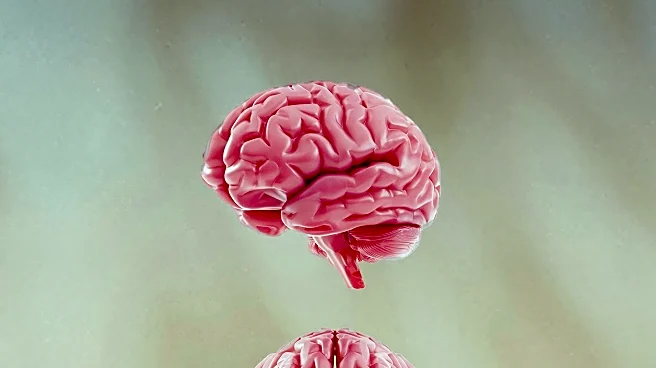What is the story about?
What's Happening?
Researchers at McGill University and the Douglas Institute have identified two specific types of brain cells that exhibit changes in individuals suffering from depression. Published in Nature Genetics, the study utilized post-mortem brain tissue from the Douglas-Bell Canada Brain Bank, which includes donations from individuals with psychiatric conditions. Through advanced single-cell genomic analysis, the team examined RNA and DNA from thousands of brain cells, discovering altered gene activity in excitatory neurons and microglia, which are responsible for mood regulation and inflammation management, respectively. This breakthrough provides a clearer understanding of the biological underpinnings of depression, potentially guiding the development of targeted treatments.
Why It's Important?
The identification of specific brain cells affected by depression marks a significant advancement in understanding the condition's biological basis. Depression affects over 264 million people globally and is a leading cause of disability. By pinpointing the cellular disruptions, this research challenges outdated perceptions of depression as merely an emotional disorder, highlighting measurable changes in brain function. The findings could lead to more effective treatments, benefiting millions of individuals and potentially reducing the societal and economic burden associated with depression.
What's Next?
The research team plans to further investigate how these cellular changes impact brain function and explore potential treatments targeting these specific cells. This could pave the way for new therapeutic approaches that address the root causes of depression at the cellular level, offering hope for improved management of the condition.
Beyond the Headlines
This study underscores the importance of integrating neuroscience with psychiatric research to develop a comprehensive understanding of mental health disorders. It also highlights the value of rare brain banks in facilitating groundbreaking research, which could lead to innovative treatments and a shift in how depression is perceived and treated.















